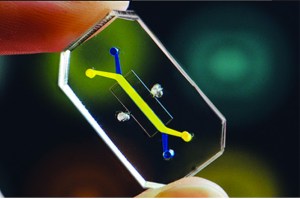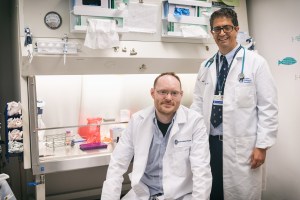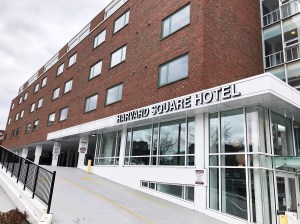Tag: Wyss Institute for Biologically Inspired Engineering
-
Health
Researchers find key to healing muscle injuries in elderly
Controlling inflammation enables injured aged muscle recovery, offering promise for the future of mechanotherapies.
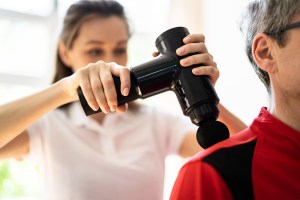
-
Campus & Community
Hansjörg Wyss gives 4th transformational gift to support Wyss Institute
Hansjörg Wyss’ fourth gift to the Wyss Institute, $350 million, aims to transform health care and the environment by developing innovative technologies that emulate how nature builds and accelerating their translation into products.
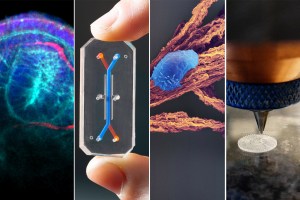
-
Science & Tech
New species in an urban ecosystem (read: solar panel)
A new species of bacteria, one that makes its home on the relatively hot and dry surface of a solar panel, was discovered recently at the Arnold Arboretum, offering a lesson that nature’s reach extends even to the artificial.
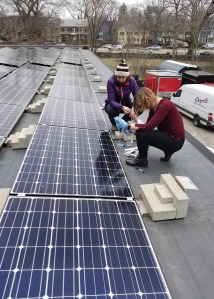
-
Science & Tech
Getting under the skin of psoriasis
Researchers have created a treatment that when applied directly to the skin in a mouse model of psoriasis, significantly reduces levels of inflammation and symptoms of psoriasis without systemic side effects.
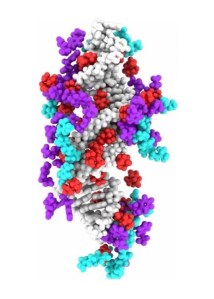
-
Health
A multipronged attack against a shared enemy
As the pandemic intensifies, Harvard scientists work to find a treatment.
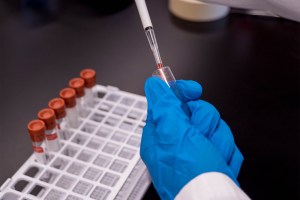
-
Science & Tech
Next generation of organ-on-chip has arrived
Multiple human organ chips that quantitatively predict drug pharmacokinetics may offer better, accelerated drug testing
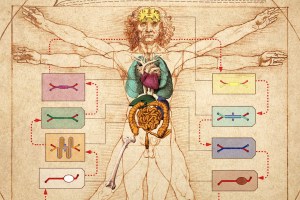
-
Science & Tech
A better candidate for chemo delivery
A new technique called ELeCt (erythrocyte-leveraged chemotherapy) can transport drug-loaded nanoparticles into cancerous lung tissue by mounting them on the body’s own red blood cells.
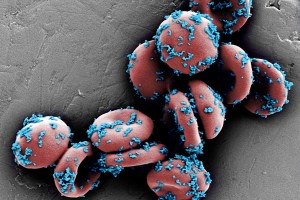
-
Health
A timely triage test for TB
A team of researchers has developed a point-of-care TB test that costs only $2 and gives results in about 30 minutes, lowering the barrier to care in low-resource settings and potentially saving millions of lives.
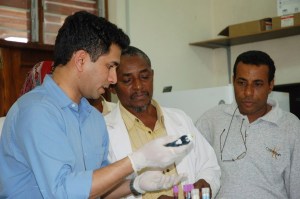
-
Science & Tech
The RoboBee flies solo
Several decades in the making, the Harvard Microbiotics Lab’s RoboBee made its first solo flight.

-
Health
Study finds performance-enhancing bacteria in human microbiome
A single microbe accumulating in the microbiome of elite athletes can enhance exercise performance in mice, paving the way to highly validated performance-enhancing probiotics.

-
Health
Engineered mini-kidneys come of age
By exposing stem cell-derived kidney organoids to fluidic shear stress, A team of Harvard researchers has significantly expanded the organoids’ vascular networks and improved the maturation of kidney compartments.
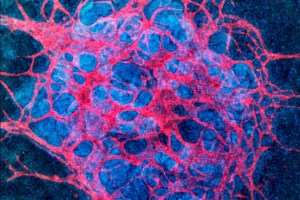
-
Science & Tech
Printing with sound
Harvard researchers have developed a new printing technology that uses sound waves to control the size of liquid droplets independent of fluid viscosity.

-
Science & Tech
Soft multifunctional robots get really small
A team of researchers has created a soft, animal-inspired robot that can safely be deployed in difficult-to-access environments, such as in delicate surgical procedures in the human body.
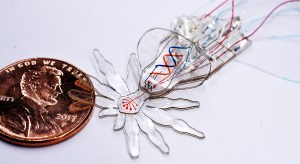
-
Health
Pig organs for human patients: A challenge fit for CRISPR
To help develop safe and effective cells, tissues, and organs for medical transplant into human patients, Harvard’s Office of Technology Development has granted a technology license to the Cambridge biotech startup eGenesis.
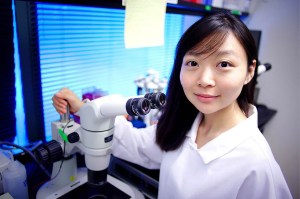
-
Science & Tech
Drawing inspiration from plants, animals to restore skin tissue
Harvard researchers have developed new wound dressings that dramatically accelerate healing and improve tissue regeneration.

-
Science & Tech
Robotic suit promotes normal walking in stroke patients
Wyss Institute’s soft, wearable, robotic suit promotes normal walking in stroke patients.
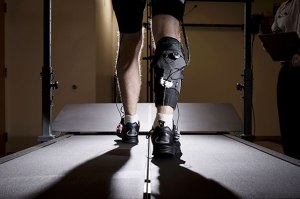
-
Health
Brain-training app creators join in the genetics game
The Wyss Institute and Harvard Medical School’s Personal Genome Project are collaborating with Lumos Labs, the makers of Lumosity, to investigate the relationship between genetics and memory, attention, and reaction speed.
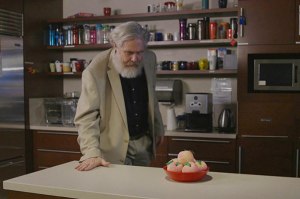
-
Science & Tech
Soft robot helps the heart beat
Researchers have developed a customizable soft robot that fits around a heart and helps it beat, potentially opening new treatment options for people suffering from heart failure.
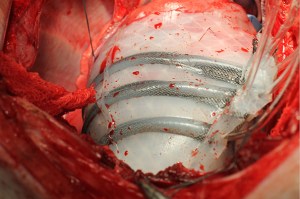
-
Science & Tech
Root, the code-teaching robot
A Wyss Institute robot named Root is designed to teach computer coding to anyone from a 5-year-old to an intermediate programmer.

-
Campus & Community
Final OK for Science and Engineering Complex in Allston
Harvard University has received unanimous final approval from the Boston Redevelopment Authority (BRA) for its planned Science and Engineering Complex (SEC) in Allston.

-
Science & Tech
The tiny flying submarine
Harvard lab develops first insect-size robots capable of flight and swimming.

-
Health
How new biosensors turn E. coli into something valuable
New biosensors developed by Wyss Institute core faculty member George Church enable complex genetic reprogramming of common bacteria like E. coli and could be leveraged for sustainable biomanufacturing, using the metabolic processes of bacterial cells to generate valuable chemicals and fuels.
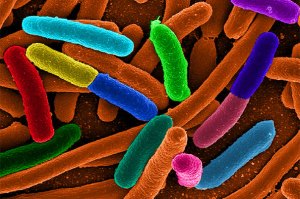
-
Science & Tech
And now, the hopping robot
Harvard-designed robot transitions from soft to hard, reducing the stress where the rigid electronic components join the body.
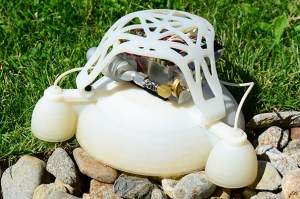
-
Science & Tech
A new grasp on robotic glove
Having achieved promising results in proof-of-concept prototyping and experimental testing, a soft robotic glove under development by Conor Walsh and a team of engineers at the Harvard John A. Paulson School of Engineering and Applied Sciences and Wyss Institute for Biologically Inspired Engineering could someday help people who have lost hand motor control regain some…
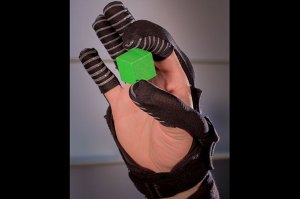
-
Health
Changing the way genomes work
In the Wyss Institute’s inaugural podcast “Disruptive,” host Terrence McNally spoke with Pamela Silver and George Church about today’s breakthroughs in technology and modifications to an organism’s genome that can be conducted more cheaply, efficiently, and effectively than ever before.
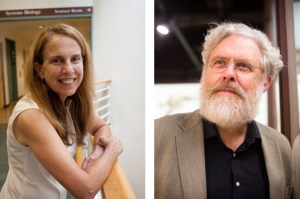
-
Science & Tech
‘It was sort of a eureka moment’
Harvard engineers demonstrated a novel engineering process by creating a self-assembling robot that folds up from a flat sheet of composite material and then walks away. The Gazette spoke with engineering Professor Robert Wood about the project.
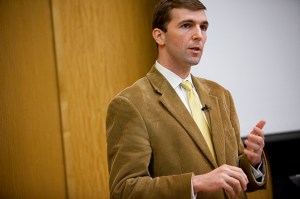
-
Science & Tech
Robot folds up, walks away
A team of engineers used little more than paper and a classic children’s toy to build a robot that assembles itself into a complex shape in four minutes, and crawls away without human intervention.
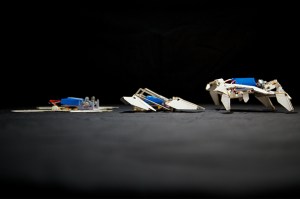
-
Science & Tech
Wyss Institute’s organs-on-chips develops into new company
The Wyss Institute for Biologically Inspired Engineering at Harvard University announced on Monday that its human organs-on-chips technology will be commercialized by a newly formed private company to accelerate the development of pharmaceutical, chemical, cosmetic, and personalized medicine products.
